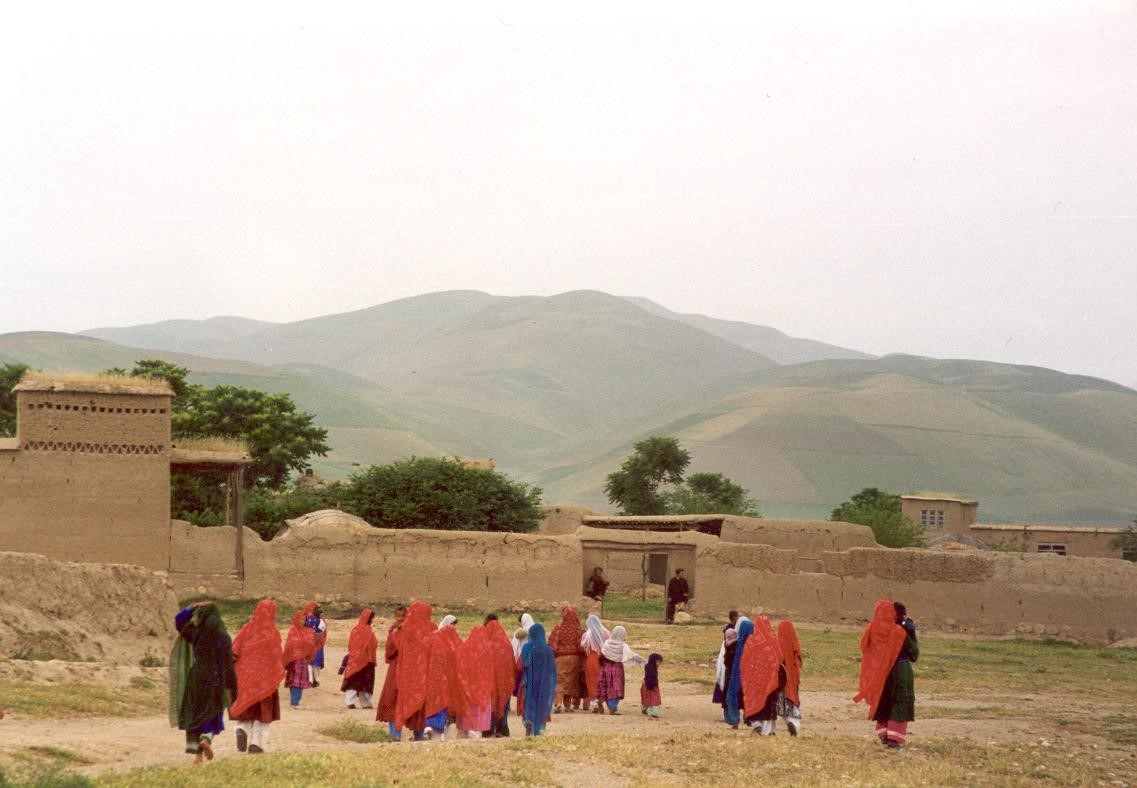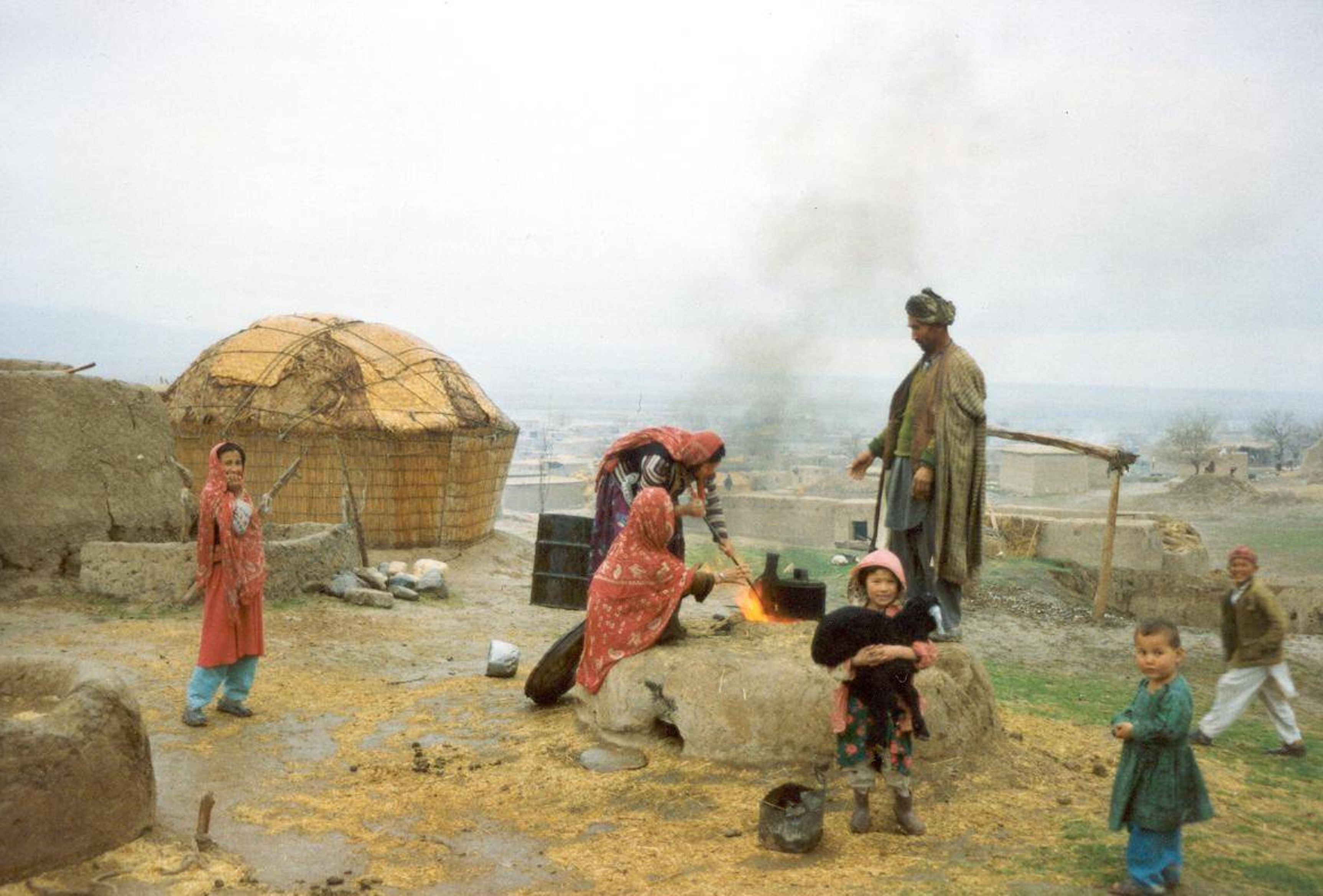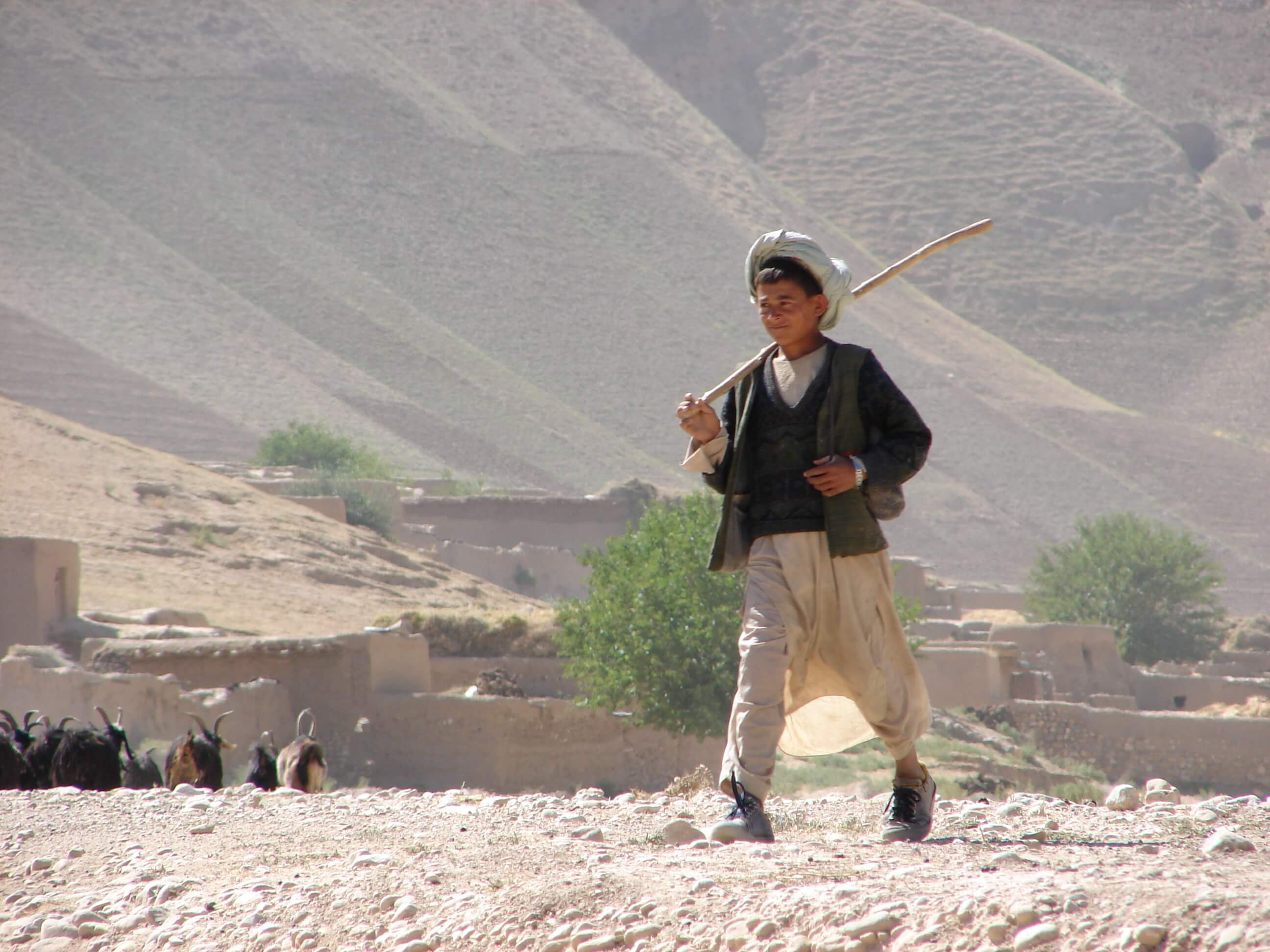Afghanistan: gratitude, repentance and hope
Thursday, 28 October 2021
| Deborah Storie

Is the international military’s departure from Afghanistan a cause for rejoicing or despair? Should we welcome or mourn the return of Taliban governance? The answers depend on whom you ask. We Australians most often hear from formally educated urban or diaspora Afghans, yet half the population are illiterate, and three quarters reside in rural areas. Some Afghans live on social media, yet less than thirteen percent use the internet. 74 per cent of Afghans are younger than 25, yet only those over that age speak with experience of Taliban rule. Answers also depend on the willingness to risk a frank answer. As Afghans say, ‘Check the sky and choose your turban’. In other words, do and say whatever reassures whichever planes, drones, satellites, soldiers or spies are watching.
I am grateful that Joe Biden had the courage to end an unnecessary and unwinnable war. That was not an easy call to make. It went against military advice, cut across defence industry interests and acknowledged that the objectives set by previous administrations were unachievable and that promises made could not be fulfilled. Like everyone else, I was distressed by the footage of panicked crowds at Kabul airport and felt the fear expressed by Kabuli and expatriate Afghans. Yet, my experience of media and refugee advocate reporting on Afghanistan has left me sceptical, and my experience of life in Afghanistan reminds me that public statements and images never tell the whole story. I was grieved but not surprised by the suicide bombing at the airport, a threat shadowing Afghanistan since 2003. I also grieved Biden’s rhetoric of vengeance and payback. Similar impulses started this war and drive other forms of terror, escalating and perpetrating cycles of violence.

I first lived in Afghanistan before the military occupation when Afghans still welcomed foreigners as guests. I spent most of 1992–98 in rural villages. That shaped my perspective. During later seasons, I worked with humanitarian organisations that were intentionally impartial in the conflict. That shaped my perspective too. While only God knows the future, my interactions with Afghanistan and its peoples, including the Taliban, and, above all, my confidence in the goodness and mercies of God, give me real cause to hope.
As an outsider, I do not speak for Afghanistan or any of its people. I share the following memories and conversation fragments to resist the rhetoric of fear and to encourage a more constructive, respectful and hopeful response.
1993, Mazar-e-Shariff. Public amputations and executions are scheduled on Fridays. A messenger from my language teacher’s father tells me which parts of town to avoid.
1996, a Hazara village. A men’s adult literacy graduation party is in full swing when a messenger arrives, “Taliban have taken the town.” A voice breaks the silence, “We are dead men.” The village locks down. Fields of ripe wheat stand unharvested. Flocks are not taken out to graze. Children do not play outside. I visit mothers mourning sons on military duty. They don’t wait for news; they know that their boys are dead. One by one, their sons return, each with a story. “Taliban were everywhere. I was in uniform. I crouched, unmoving, behind a wall. Then I coughed. I was terrified! But they gave me bread and water and told me when it was safe to leave. They don’t want to hurt us. They don’t want to fight. They are village boys, just like us.” I sit with neighbours huddled inside. There are no phones, no radios, no one comes or goes, yet suddenly we know that Taliban is looting neighbouring villages. Only in retrospect do we discover that no villages were looted, no children abducted, no women violated. Fear breeds fear.
1997, remote mountains valleys. Communities describe their lives. “During peace, they take half our grain, the best of our animals, our rugs and yoghurt, our wood and trees. They take our sons as labourers and our daughters as maids. They take all we have, give nothing back, and expect us to be grateful. During war, the government cannot tax us, landlords cannot collect. If we are unlucky, we may be looted, our crops burnt, our sons killed. But perhaps the fighting won’t come our way. We may lose one or two sons as soldiers but, God willing, will feed and clothe our other children. During peace, the cities grow fat while we grow food and starve. During war, no-one is fat, but we starve last. We long for peace, but not any peace.”
2005. Rural women identify the Taliban years as their happiest and most secure. “We sent our husbands and sons out to work each morning confident that they would return that night, confident that we wouldn’t be looted and raped in their absence.”
2007, a village in Eastern Afghanistan. “It’s always the same. Those in power hold the cities and the plains, the resistance hide in the mountains. We’re caught in between. We risk our lives to plough, tend sheep and collect water. Women and children are not safe inside or out. Young men? The army conscripts them by day; the mujahedeen or Taliban take them by night.”
2015. A US gunship shells a hospital in Kunduz.[1] Overnight, Afghanistan becomes the most dangerous place for humanitarians to work and a quiet exodus of senior Afghan staff begins: “When even hospitals are attacked...”
It is not our place to shape or dictate Afghanistan’s future. As outsiders, we need to walk more humbly and respectfully alongside the country and its peoples, affording them time and space to negotiate their own future. This requires us to repent (turn away from) notions of revenge and retaliation, to learn what makes for peace. It requires us to attend to more diverse voices and perspectives, to cultivate more critical, biblically-grounded and hopeful responses.
The Light has come into the world and the darkness will not overcome it. Love will, in the end, conquer hatred. Justice will, eventually, prevail. Yes, Taliban has committed atrocities, as have other groups, including the international coalition. We are all created in God’s image and have all fallen short. The prophetic vision inspires us: swords beaten into ploughshares, spears into pruning hooks, nations no longer learning or preparing for war, each family enjoying their own vine and fig tree, unafraid. May God’s will be done on earth as in heaven. Amen.

Deborah Storie lived and worked in Afghanistan periodically between 1992 and 2017.
Photo credits: Deborah Storie.